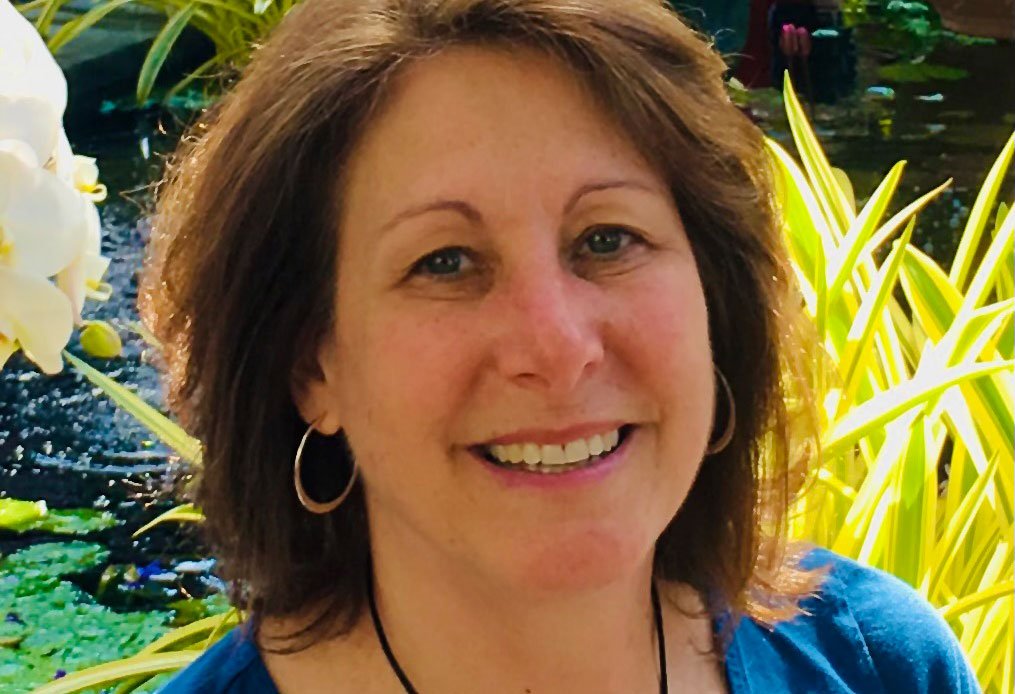Laurie Goodstein to be honored with 2021 RNA Lifetime Achievement Award
By Danae King, the Columbus Dispatch, RNA board member
When Laurie Goodstein was asked as a young reporter to choose from a few beats, she surprised many by picking religion.
The decision to choose the “faith beat” over the arguably more prestigious Maryland politics beat was one that shaped the rest of her life, and career.
Laurie Goodstein
“I just liked the idea of tooling around the metro area and meeting people of different religious communities and writing stories,” said Goodstein, who reported for 25 years on religion, first for The Washington Post and then for The New York Times. “That appealed to me more than being in a government building. And I was right; it was just instinctive.”
Goodstein, now a deputy international editor at The New York Times, will be honored with the 2021 William A. Reed Lifetime Achievement Award at a virtual awards ceremony on Oct. 7, 2021, and again in person at the Religion News Association’s 2022 Annual Conference March 24–26 in Bethesda, Md.
The annual prize is presented to individuals who demonstrate exceptional long-term commitment and service to RNA and its members, and to the field of religion reporting.
Betsy Shirley, president of RNA, said Goodstein was chosen this year due in part to her taking the time to be involved in RNA while also breaking major stories on the beat.
Goodstein served on RNA committees, attended conferences and her religion reporting has regularly been recognized by the association through awards, Shirley said. Each time her own work was recognized, Shirley remembers Goodstein taking the time at the podium to recognize others.
“It is an honor and a joy to award Laurie for her longtime work on the religion beat,” Shirley said. “She has been a north star of excellence in religion journalism and someone many of us across the beat have admired and respected throughout all of our careers."
It’s odd for Goodstein to think she’s suddenly in the category of Lifetime Achievement Award winners, she said. It also makes her wonder where the time went.
“I still feel like I’m just starting out,” she said.
Growing up in Los Angeles in the 1970s, Goodstein said diversity was celebrated and, as a reporter, she was drawn to stories about the diversity of religious life.
After spending time in Kenya during college and witnessing the country’s only coup, she began reporting on it for local magazines then spent more time in the country teaching on the coast.
When she got back to California from Kenya, Goodstein began working on her college paper, at a local radio station and, after college, edited a free weekly.
She graduated from the University of California, Berkeley in 1985 and later went to Columbia Journalism School for a nine-month master’s program.
In 1989, after graduating Columbia, she got a job as a news assistant at The Washington Post and, in 1993, got her choice of beats.
From 1994 to 1996, she reported to Glenn Frankel, then Deputy National News Editor, who she said nurtured her early on.
Frankel credited Goodstein with being the key to the success of elevating the religion beat.
“She combined a journalist’s instinctive skepticism about institutions to peer behind the curtains of rhetoric and reverence to uncover the power, money, politics and personal ambitions of religious organizations and the men (and it was almost always men) who ran them,” Frankel said. “At the same time, she harbored a deep respect and compassion for religious people, their beliefs, their anxieties and their search for comfort and shelter in a world that is often frightening and cruel.”
Frankel recalled many stories she did, from “tough-minded” investigative pieces like her work on how the Church of Scientology destroyed the Cult Awareness Network, to a story on a Navajo pueblo in New Mexico where children were being sexually abused by Catholic priests at a local retreat center.
The story on Scientology got her noticed by The New York Times, and she got a job there in 1997.
Dean Baquet, now the executive editor of The New York Times, said he hired Goodstein because he wanted a reporter who understood religion not as foreign, but as important to the lives of many Americans.
“She is a truly empathetic, open-minded reporter. She is tough, but also human. She is an elegant writer,” Baquet said. “She brought religion to life on our pages. She wrote about the people with heart, and the institutions with deep understanding.”
The newspaper never had a religion page, but Goodstein pushed to make sure the religion angle was featured in other stories and sections and said she was lucky to always have editors who valued religion coverage.
“Religion news is part of life and everybody's news,” Goodstein said. “I think being a religion reporter in general you have to also be a strong advocate for the beat and for the issue because it's not always obvious in a newsroom.”
Despite traveling to Rome to cover the elections of Pope Benedict and Pope Francis and witnessing the elections of groundbreaking religious leaders, one of her favorite pieces is still a profile she wrote in November 1994, on Marvin Goldman. A Jewish man who traveled from his showroom in New York’s garment district to sell suits to Catholic bishops from a hotel suite in Washington D.C. during their annual conference, Goodstein said she could relate to Goldman.
Being Jewish, Goldstein said she has an “outsider’s sensibility” and an awareness of her status as a religious minority.
That’s in part why she said, “I would describe my work as compassionate but edgy.”
Goodstein also did a lot of investigative reporting.
Stories she wrote about a priest who sexually abused as many as 200 deaf boys at a school for the deaf in Wisconsin became the basis for the HBO documentary “Mea Maxima Culpa: Silence in the House of God."
In 2018, her last year as a religion reporter, Goodstein helped to expose sexual abuse by Bill Hybels, the founding pastor of Willow Creek Community Church and a giant in the evangelical world, and Cardinal Theodore McCarrick, the former archbishop of Washington D.C. and Newark, she said.
Her work telling the stories of sexual abuse survivors made a “deep impression” on her, Goodstein said.
“Abusers and hypocrites, as well as religious organizations that are victimizing vulnerable people should be exposed, and I came to believe that that was part of my job,” she said. “Bringing their stories to light was probably the most impactful work of my career.”
There are also her experiences with RNA.
Now considered a “master of her craft” by Shirley, when Goodstein started, she looked at RNA annual conferences as continuing education of sorts, as she had never studied religion. She has good memories from conferences, from bringing her first child, as a baby, to her second RNA conference, where she won an award to years later being asked to serve on a panel.
From the beginning, she said the conferences helped her find people who understood religion reporting and offered solidarity, support and inspiration.
Though she may not have known it, Goodstein did that for others over the years, as well.
Jeff Diamant, RNA board member and contest chair, has known Goodstein since the early 2000s, when they covered some of the same stories, him for The Star-Ledger in Newark, New Jersey and her for The New York Times.
Despite working for prestigious papers, Goodstein was relatable, kind and encouraging to other religion reporters, Diamant said.
"She's a top-notch human being in addition to a top-notch reporter," Diamant said. "She just made the religion beat a nicer place to be for a lot of people,” he said, “Everyone really likes her.”
Diamant believes Goodstein is an “excellent pick” for the Lifetime Achievement Award, something Goodstein is still getting used to.
“I was bowled over,” she said, of finding out she got the award. “I remember being at conferences and hearing the lifetime achievement award winners talk about their work and knowing what they’d accomplished.
Reflecting on her career, Goodstein said she thinks religion is one of the best beats, because it’s not really a beat at all.
“It’s everything,” she said. “Religion intersects with almost every story out there. That’s why we need religion reporters: to bring that to the surface.”
Ken Chitwood contributed to this story.
###

